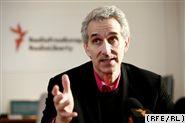
Second in a two-part series. Click here to read Part I on the scope of the terrorist threat. LONDON — Simmering concern over the abuse of Britain’s post-9/11 anti-terrorist legislation turned to public outrage last month, when nine anti-terrorist officers used their expanded powers to raid the home, parliamentary office and constituency headquarters of senior opposition Conservative legislator, Damian Green. Green was arrested and questioned for nine hours on suspicion of “aiding and abetting, counseling or procuring misconduct in a public office.” It is an offense that carries a life sentence and that, if rigorously applied, would consign many journalists […]




